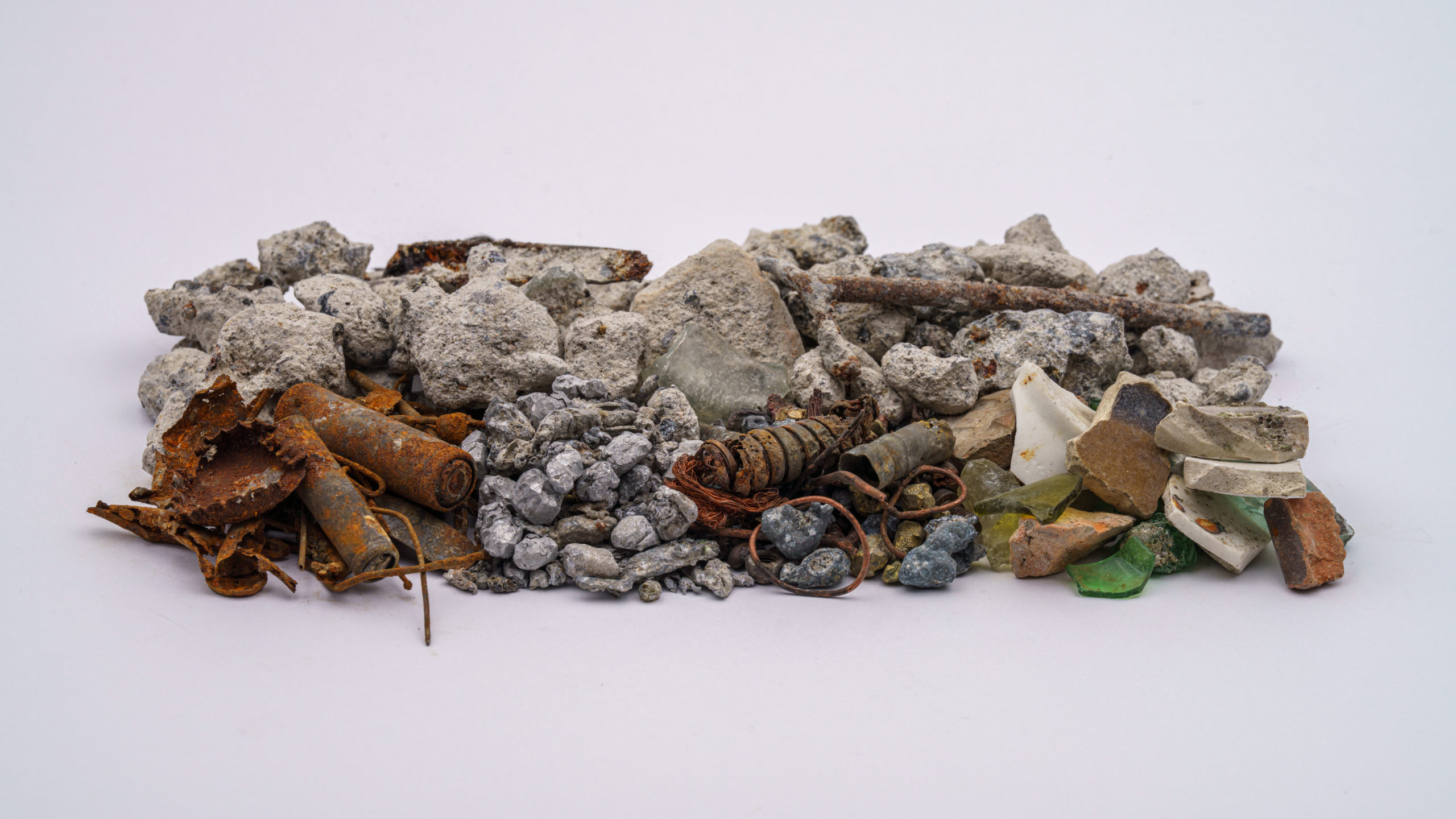SELFRAG was founded in 2008 by a group of investors, scientists and engineers committed to saving the planet. Their goal was to increase recovery of basic materials from incinerator bottom ash (IBA) by improving the recycling rate. They developed a unique selective fragmentation technology that enables IBA to be transformed into valuable resources, contributing to a circular economy. Their innovative patented process uses high-voltage pulses – similar to lightning bolts – to recover metals and minerals. The pulses produce powerful shock waves that effectively clean and separate the components from the bottom ash. “We are able to transform 50% of bottom ash to value, while our closest competitors achieve a recovery rate of just 15%,” says Anton Affentranger, Chairman of the Board at SELFRAG. Not only is the recovery of valuable materials maximised but the volume of waste to be sent to landfill is also halved, and an estimated 727 kg of CO2 is saved per tonne of IBA treated.
Before integrating its selective fragmentation technology into recycling processes, SELFRAG developed a series of other uses for it. The first of these were in research, a field in which the company has marketed some 45 systems worldwide, used in sample preparation by internationally renowned centres such as Queen’s University at Kingston, the University of Queensland and Goethe University Frankfurt. Another market was the semiconductor industry in Switzerland, the United States and China, where it is used for silicon grinding and recycling.
However, SELFRAG is now focusing its attention on waste management. Following successful trials at a waste-to-energy plant, the company has built its first plant, Centro Uno. The facility has been in operation since March 2023 and treats IBA from three Swiss incinerators. With an annual capacity of 35,000 tonnes, it is expected to save more than 25,000 tonnes of CO2 a year. And the savings don’t stop there: “Our technology consumes very little energy because we use high-voltage power for nanoseconds,” says Affentranger. Centro Uno also produces around 20% of its electricity, using photovoltaics. From 2025, a further 45,000 tonnes of IBA is expected to be recycled annually in the upcoming Centro Due facility.
In 2023, SELFRAG raised more than CHF 14 million to continue its technological development and plans to have seven or eight recycling plants operating in Switzerland and abroad by the end of this decade. Feasibility studies for this type of installation are also under way in the United States and Sweden. “We are assuming all the technical risks and building, financing and operating this infrastructure ourselves, with financing secured by Swiss Life,” says Affentranger. The next step for SELFRAG is electronic waste recycling. “We are very enthusiastic about the way company is developing, from research to production,” Affentranger says.

SELFRAG AG